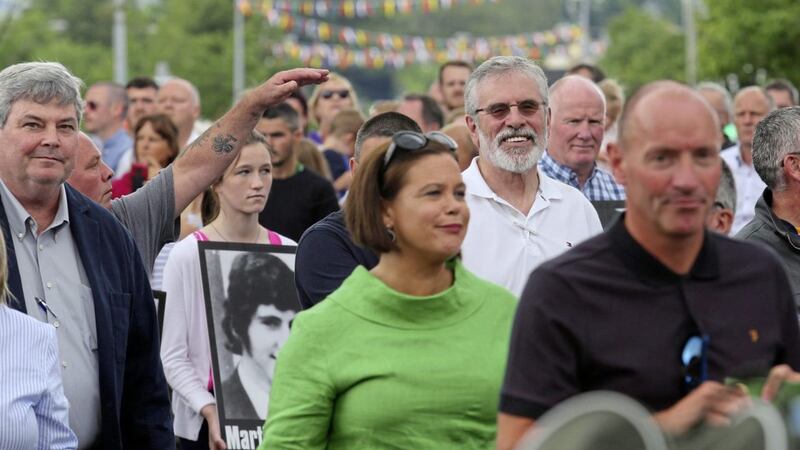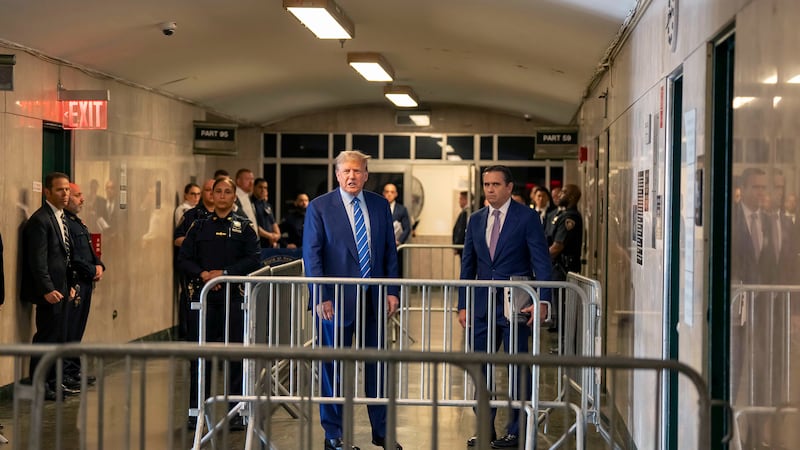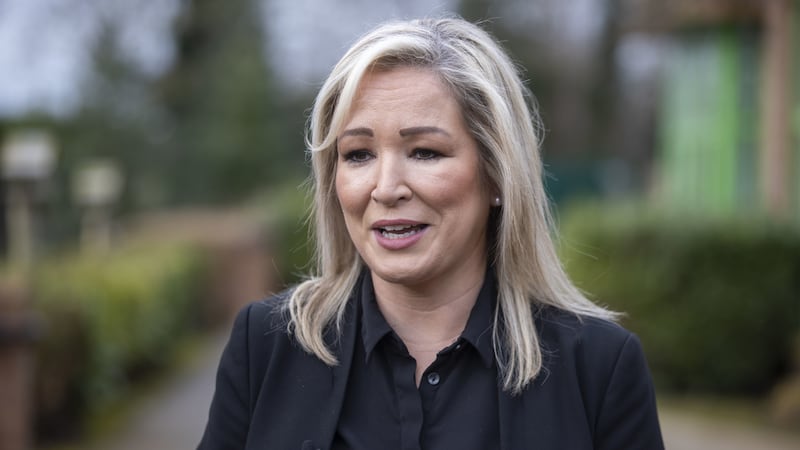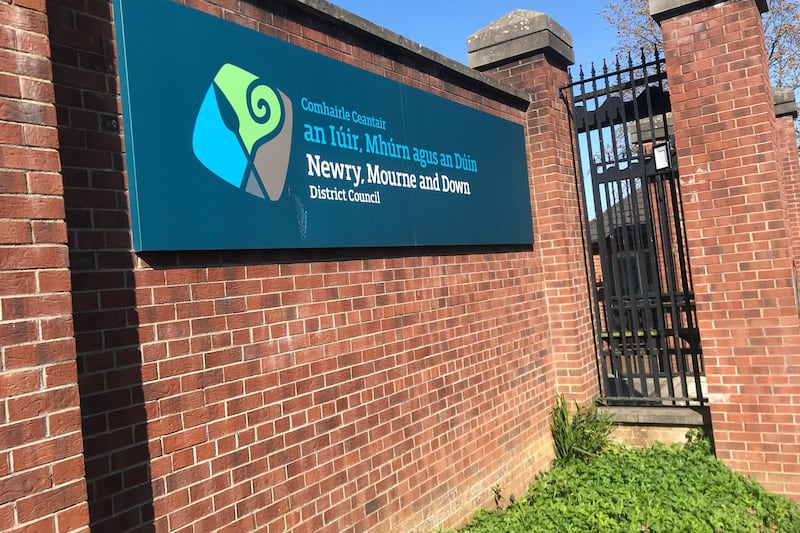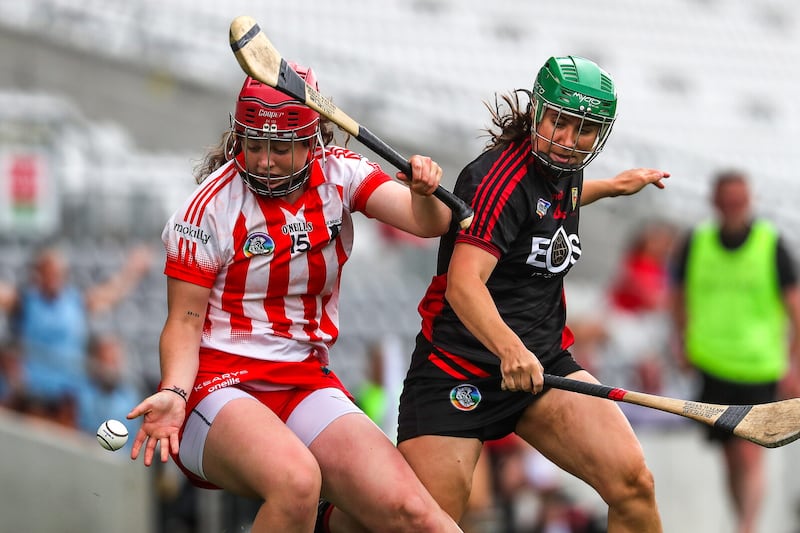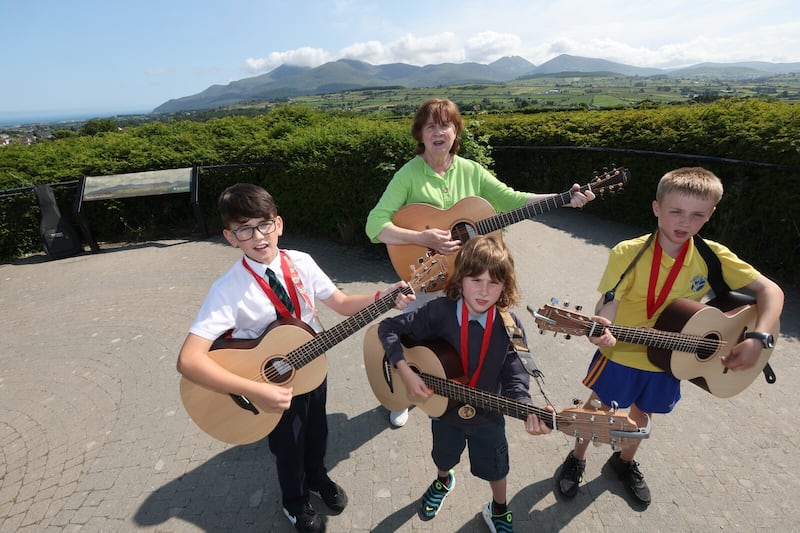SINN Féin leader Mary Lou McDonald has said the time for a referendum on Irish unity is "drawing near".
Speaking at the National Hunger Strike Commemoration, held this year in Castlewellan, Co Down, Ms McDonald told the crowds "an Irish unity referendum is back at the centre of political discussion".
A referendum on a united Ireland was provided for in the Good Friday Agreement, she said.
"The need for a referendum to end partition is writ large. The time for a unity referendum is drawing near. It is not a question of if a unity referendum will happen but a question of when," she said.
The comments came a week after the Sinn Féin leader said a unity poll should not be held while uncertainty around Brexit remains, before a day later calling for a referendum "as soon as possible".
During her speech at the 37th annual commemoration, Ms McDonald said there was an "urgent need" for dialogue ahead of a unity poll and that discussions "must" involve unionist politicians. She also claimed that Brexit could make a united Ireland a more attractive proposition for unionists.
"As Britain turns away from Europe, the appeal of being part of a new and outward-looking Ireland will, I believe, prove ever more attractive to some within the unionist community.
"British identity can and must be accommodated in a united Ireland and I believe nationalist Ireland is open to constitutional and political safeguards to ensure this," she said.
In relation to the current political impasse at Stormont, Ms McDonald said her party was committed to re-establishing the Executive and Assembly.
"The Irish and British governments have said there will be a new round of talks in the autumn. That is welcome. However basic rights, respect and equality cannot be disregarded, they are not bargaining chips.They are for all in society."
"It is not sufficient for the two governments to only call a talks process. They must bring something to the table. They need to make clear that agreements must be implemented in full.
"The way to unlock the political process is to make clear that rights enjoyed in the rest of Ireland and across Britain will be implemented in the north," she said.
The hunger strike commemoration remembers the 10 republicans who died in the H-Blocks after they refused food as part of a campaign to force the British government to give them political status.
Yesterday thousands attended the Co Down march, which had been subject to criticism beforehand by relatives of local victims of the IRA, who said it was insulting their loved ones.
Ms McDonald told the crowds in Castlewellan that the hunger strikers "continue to inspire us all" and that Irish republicans "remember with deep pride the sacrifice and heroism of those who died in the H-Blocks".
